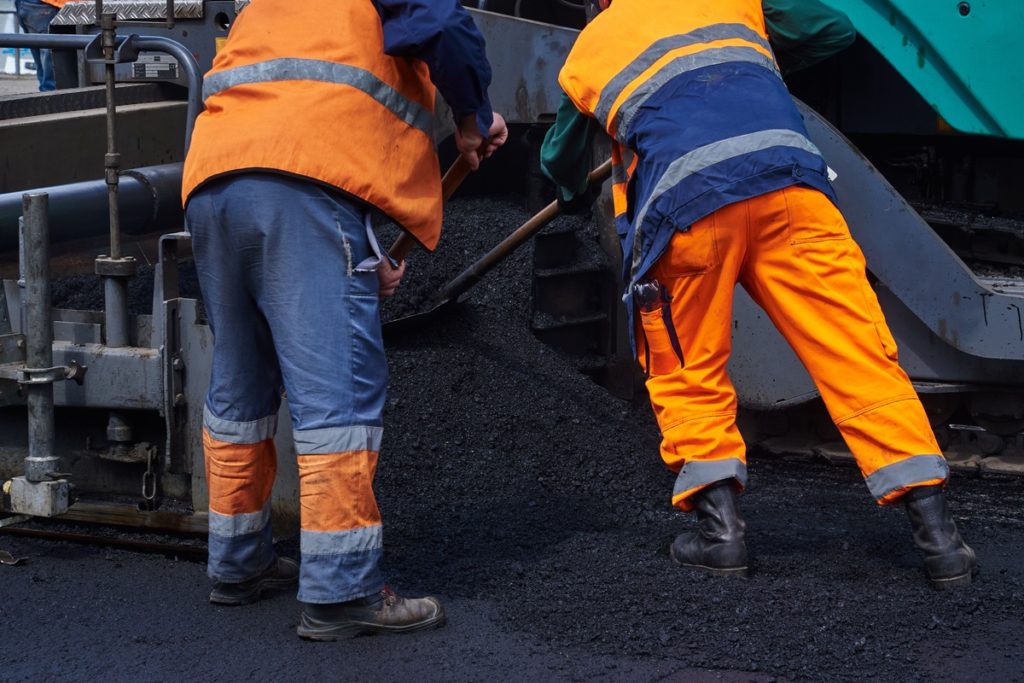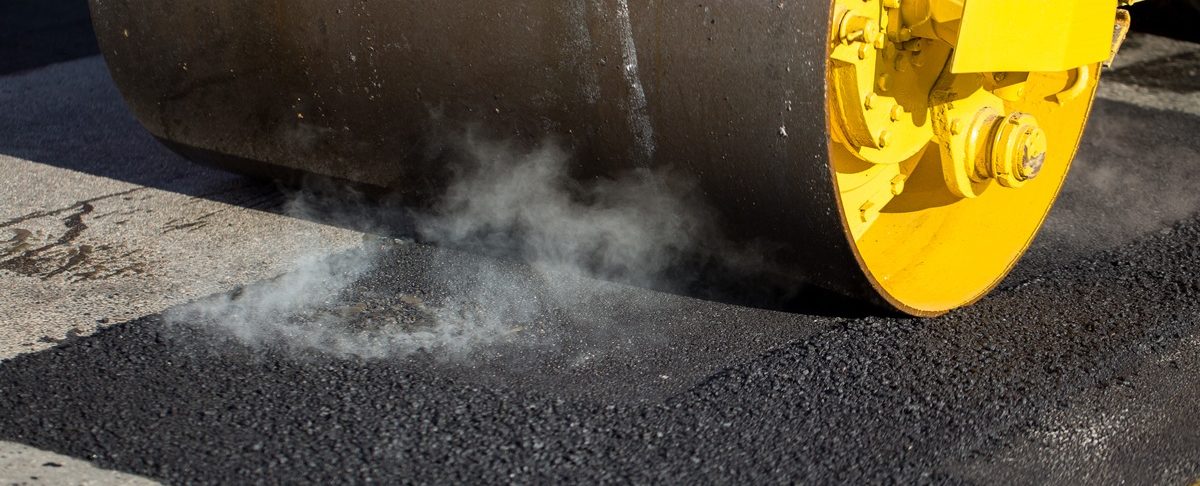Did you know that out of all asphalt products created in the United States of America, about 80% will be recycled at some point in its lifespan? Asphalt is actually America’s most recycled product.
It is estimated by the National Asphalt Pavement Association (NAPA) that over 110 million tons of asphalt are reclaimed annually, as of 2018. Of that reclaimed material, almost 95% gets reused in the paving of infrastructure across the country. Overall, nearly 100% of asphalt will be recycled or stored for future use in the United States.
The use of recycled asphalt products (RAP) has become increasingly widespread. The surge of usage in recycled materials in the west is undoubtedly due to the immense benefits that taxpayers and tradespeople alike can reap from the process.
What is Asphalt Recycling?
Asphalt recycling is the process of reclaiming and reprocessing used asphalt materials to create new and usable products. As stated by the Federal Highway Administration:
“Reclaimed asphalt pavement (RAP) describes removed and/or reprocessed pavement
materials containing asphalt and aggregates. These materials are generated when asphalt pavements are removed for reconstruction, resurfacing, or to obtain access to buried utilities. When properly crushed and screened, RAP consists of high-quality, well-graded aggregates coated by asphalt cement.”
Essentially, asphalt recycling is an inexpensive and environmentally friendly process that utilizes previously existing asphalt materials to create new asphalt products, like streets, driveways, shingles, pavers, and much more. The use of recycled asphalt products has many advantages, which is why public agencies and private contractors alike have widely adopted the process.
6 Benefits of Recycling Asphalt
- It saves money. Using recycled asphalt means less money will be spent on new or “virgin” asphalt materials. The National Asphalt Paving Association estimates that nearly $2 billion in taxpayer dollars are saved each year using recycled pavement in infrastructure. The use of recycled asphalt pavement and shingles in commercial and residential improvement projects is a much cheaper alternative to generating and hauling in virgin asphalt.
- It is better for the environment. Increasing the use of recycled asphalt products (RAP) plays a key role in significantly reducing greenhouse gas emissions. The use of RAP lessens the need for new oil in the asphalt creation process. Recycled asphalt is 100% recyclable and renewable, so it has an incredibly long life span.
- It reduces other waste in landfills. Pavement and other RAP consists of a mix of recycled materials, including glass, rubber, steel, and cement. The resulting conglomeration reduces the presence of those other non-biodegradable materials in landfills as well as asphalt. Overall, the recycling process saves about 60 million cubic yards of landfill space per year, according to the NAPA Sustainability Report.
- It conserves other natural resources. Other limited natural materials are incorporated into asphalt mixtures to create pavement. By using RAP, natural resources like stone, sand, and gravel, which aren’t renewable, can be preserved. Agencies can cut back on the use of other nonrenewable resources, like oil, when less virgin asphalt production is required.
- The durability and longevity of recycled asphalt materials increases. When new asphalt mixes with recycled materials, it creates a thicker, more durable product. Recycled asphalt pavement has improved stiffness, which decreases the probability of any cracking. This means fewer repairs and maintenance on the asphalt in the future.
- It has many uses beyond road paving. Recycled asphalt material is used for many other products beyond paved commercial infrastructure. Products that incorporate RAP also include:
- Residential and commercial roofing and shingles
- Residential and commercial building exteriors
- Landscaping needs (pavers, retaining walls, etc.)
- Parking lots
- Driveways

How Does the Asphalt Recycling Process Work?
Creating recycled asphalt products (RAP) is an inexpensive and environmentally friendly process. It involves three major steps before government agencies, construction workers, contractors, or homeowners can utilize the product.
Asphalt Milling
The first step in the asphalt recycling process is called asphalt milling. This process involves removing the top layer of asphalt from a street or driveway while attempting to maintain the structure of the sub-base. Once the road or driveway is carefully milled with special machinery, it is hauled away to an asphalt plant for the next step of the recycling process.
Asphalt Screening and Sizing
After the asphalt milling process is completed, the recycled materials must be sorted, screened, and sized. Smaller sized asphalt particles may be separated for use in materials like shingles or pavers. In contrast, larger chunks of asphalt may be recycled back into pavement, parking lots, or driveways with more surface area.
Asphalt Pulverization
Another step in the asphalt recycling process is called asphalt pulverization. This process is not always necessary but may be utilized if the sub-base of the original asphalt has failed or needs replacing for any reason.
Asphalt pulverization involves grinding up the existing sub-base layer and blending it with the RAP, creating a new surface layer out of the recycled materials. This will create an extremely strong first layer to begin building on. Asphalt pulverization is always done on-site, reducing major costs.
This process is often used because it is fast, cost-effective, and good for the environment. By completing the process at the actual job site, money and time are saved on hauling. Plus, since it incorporates wholly recycled materials, it is reducing the level of nonrenewable resources used and greenhouse gases emitted.
Conclusion
Asphalt is consistently the most recycled material in the United States each year. The use of recycled materials is widespread in both the private and public sectors. The use of RAP can lower construction costs, reduce greenhouse gas emissions by nearly 20%, and provide a durable, long-lasting structure.
Asphalt is non-biodegradable and the process of creating virgin asphalt products uses up valuable nonrenewable resources like oil. By utilizing recycled asphalt, pavement professionals can decrease their carbon footprint.
Even the shingles on a roof can be constructed from reclaimed asphalt and recycled again at the end of their lifespan. There are many ways to incorporate reclaimed and recycled asphalt products into construction products. These days when looking for a paving contractor, you will be hard-pressed to find one that does not take advantage of recycled asphalt in their projects.




